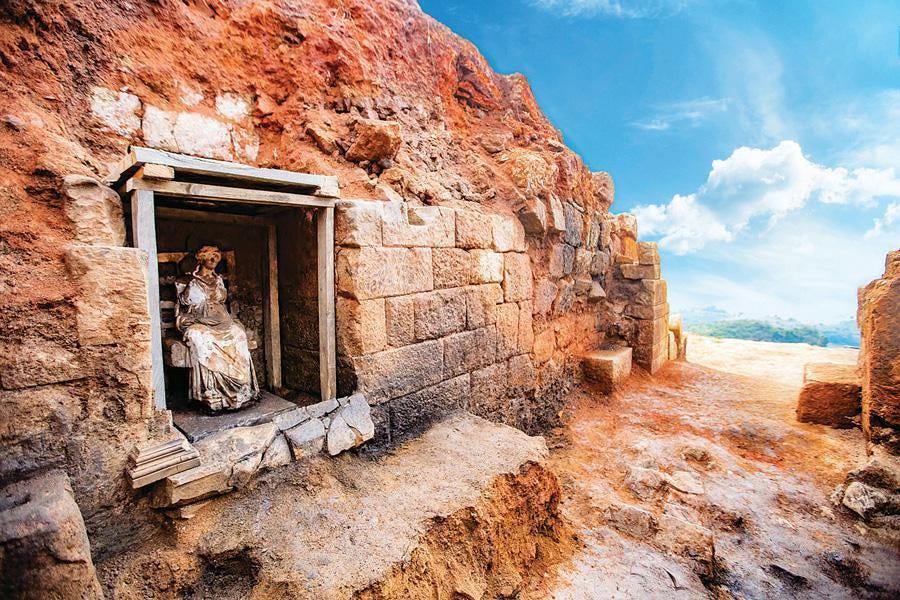THE GOLDEN VERSES Step 2
The Way of Truth.
Welcome to Step 2!
In this dramatic photo below we see a statue of the Anatolian goddess, Kybele, from the fort of Kurul Kalesi near the Black Sea in Turkey. The entrance to this ‘fortress of council,’ as it was known, collapsed when attacked by Romans: its contents were largely untouched. During the excavations over the last years, the statue of Kybele was found in her exact original spot, looking out over the land.
I felt it was a very suitable image to stand at the head of this verse which looks at the Oath, and at law and truth, for Kybele (also spelled Cybele and pronounced in English Si’be-le but in Greek as Ku-bay’le) is the mother of the earth, who is frequently conflated with Rhea, mother of Zeus, and with the Kouretes or Curetes, the daemonic spirits who protected the infant Zeus on Mount Ida by clashing their spears on their shields to cover his crying, and so avoid Kronos who sought to destroy him.
Kybele was often shown seated on a chariot accompanied by lions, but here she sits in her original position, ever-watchful.
Keep reading with a 7-day free trial
Subscribe to Caitlín Matthews - A Hallowquest Sanctuary to keep reading this post and get 7 days of free access to the full post archives.



